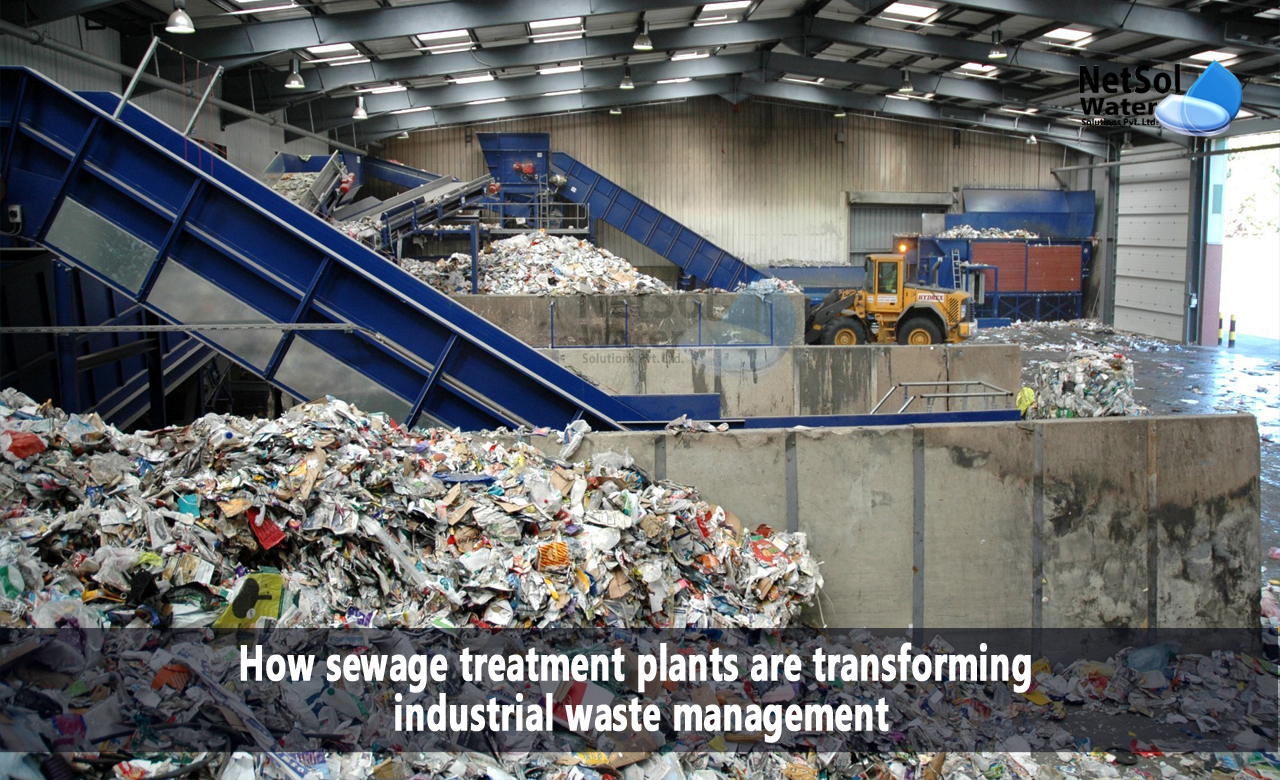How STP Plants are transforming industrial waste management?
Industrial waste management is a critical aspect of sustainable manufacturing practices. To achieve a greener future, industries must move beyond traditional disposal methods and embrace innovative solutions. Sewage treatment plants (STPs) offer a transformative approach to industrial waste management, providing opportunities for waste reduction, resource recovery, and environmental stewardship.
In this blog, we will explore how sewage treatment plants are revolutionizing the way industrial waste is managed, driving sustainability and creating a positive impact on the environment.
1- Comprehensive Waste Treatment
Sewage treatment plants are designed to handle a wide range of pollutants and contaminants present in wastewater, including industrial waste. By collaborating with STPs, manufacturers gain access to robust infrastructure and expertise that ensures the effective treatment of their waste streams. This comprehensive waste treatment goes beyond simple disposal, as STPs employ advanced processes to remove harmful substances and minimize environmental impacts. By entrusting their waste to STPs, manufacturers can be confident that their waste is managed responsibly and in compliance with environmental regulations.
2- Resource Recovery and Recycling
One of the most significant advantages of partnering with sewage treatment plants is the opportunity for resource recovery and recycling. Wastewater contains valuable materials and resources that can be extracted and repurposed. Through innovative techniques such as anaerobic digestion and advanced filtration, STPs can recover organic matter, nutrients, metals, and energy from industrial waste. These recovered resources can be utilized in various industries, reducing the need for virgin materials and promoting circular economy principles. By collaborating with STPs, manufacturers can transform their waste into valuable resources, minimizing waste generation and maximizing the efficient use of materials.
3- Energy Generation and Cost Reduction
Sewage treatment plants offer a unique opportunity for energy generation and cost reduction. Wastewater contains organic matter that can be converted into biogas through anaerobic digestion. This biogas, predominantly methane, can be captured and used to generate electricity and heat. By harnessing this renewable energy source, manufacturers can offset their energy costs, reduce reliance on fossil fuels, and contribute to greenhouse gas emissions reduction. Additionally, excess energy can be sold back to the grid, potentially creating a new revenue stream for manufacturers. The integration of sewage treatment plants into industrial waste management allows manufacturers to turn a waste product into an asset, driving both environmental and financial benefits.
4- Compliance with Environmental Regulations
Environmental regulations surrounding industrial waste management are becoming increasingly stringent. Failure to comply with these regulations can result in significant penalties and reputational damage. By partnering with sewage treatment plants, manufacturers can ensure that their waste is treated in accordance with regulatory requirements. STPs have the expertise and infrastructure necessary to meet these standards, ensuring proper waste treatment and minimizing the risk of non-compliance. By actively engaging with STPs, manufacturers can demonstrate their commitment to environmental responsibility and sustainable practices.
5- Collaboration and Knowledge Sharing
To fully harness the potential of sewage treatment plants in industrial waste management, collaboration and knowledge sharing are essential. Manufacturers, STPs, government agencies, and research institutions need to work together to develop innovative solutions, share best practices, and overcome existing challenges. By fostering collaborative relationships, stakeholders can drive technological advancements, promote policy reforms, and facilitate the adoption of sustainable waste management practices across industries.
Conclusion
Sewage treatment plants are catalysts for transforming industrial waste management. Beyond disposal, STPs provide opportunities for comprehensive waste treatment, resource recovery, energy generation, and compliance with environmental regulations. By embracing the potential of STPs, manufacturers can revolutionize their waste management practices, minimize environmental impacts, and contribute to a more sustainable future. The collaboration between manufacturers and sewage treatment plants is a crucial step towards a circular economy, where waste is viewed as a valuable resource rather than a burden on the environment.
Netsol Water is Greater Noida-based leading water & wastewater treatment plant manufacturer. We are industry's most demanding company based on client review and work quality. We are known as best commercial RO plant manufacturers, industrial RO plant manufacturer, sewage treatment plant manufacturer, Water Softener Plant Manufacturers and effluent treatment plant manufacturers. Apart from this 24x7 customer support is our USP. Call on +91-9650608473, or write us at enquiry@netsolwater.com for any support, inquiry or product-purchase related query.



